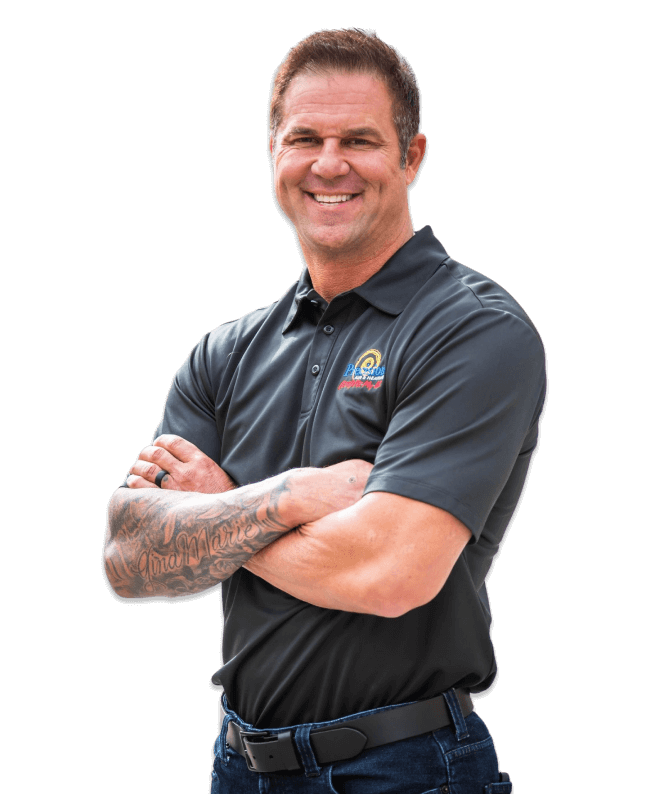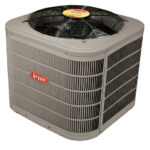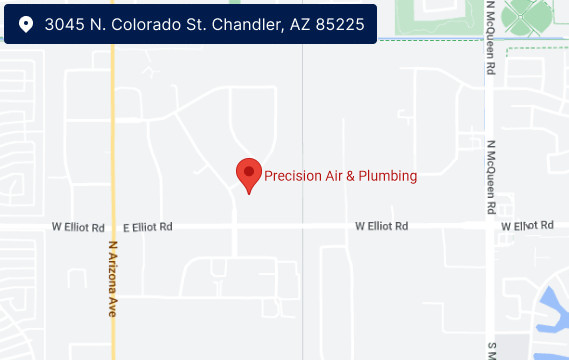What Is Forced Air Heating?
A cold snap with a broken heater is the worst time to be searching for ‘forced air heating vs. central air’, or ‘forced air vs. a heat pump’. You may be wondering what exactly is forced air? Or which is better: electric or gas? You may even be curious about which one is the best investment.
At Precision Air & Plumbing, we like to provide you with all the answers. That way, when you’re up at 3 a.m. trying to browse with freezing fingers, you’ll have everything you need to know.
Forced Air Heating: What Is It?
Imagine yourself sitting around a lovely campfire. It’s nice and warm and the smoke is floating up to the sky, instead of directly into your face. Forced air heat systems rely on several operations to function, but the heating aspect is one of the most important. Inside a furnace is a heating element that produces warmth. It burns energy while it creates the heat, although the source depends on the furnace. The system brings cooler air across the heating element to warm it up. Once the air is warm, the blower sends that warm air through the ductwork and out the vents to increase the temperature in each room.
The system continually cycles air throughout the home while it heats. It helps to ventilate your home and uses a filter to pull dust and debris from the air before moving it through the ductwork. If you have ever closed a vent in a room by accident, you can usually tell the difference pretty quickly. Rooms without ventilation feel stuffy, or the air might smell stale.
Forced Air vs. Central Air
Many people think of forced air heat and central air as two pieces in the same puzzle. You get forced air heating through a furnace or sometimes a heat pump. Central air provides your air conditioning and humidity control during the hotter months. The air conditioner unit sits outside, but there are indoor components that it needs to operate.
If you don’t have a furnace, you’ll need some kind of air handler to take the conditioned air and push it through to the vents. With a furnace/central air conditioning combo, the air conditioner can rely on the furnace’s air handling systems. That’s why the evaporator coil for the central air system usually sits near the furnace.
In a place like Phoenix with blazing hot summers, your air conditioner is generally the star of the show. But when the weather cools down and you get some chilly nights, having a furnace to keep your home’s temperature steady is an important component as well.
Forced Air vs. Heat Pump
When you start to search for a furnace versus a heat pump, you might be surprised to learn that both count as forced air systems. They both take advantage of your home’s ductwork and vents to circulate conditioned air. If you’re unfamiliar with the features of a heat pump, it might be easier to start by looking at a heat pump versus central air. The main function of a central air conditioner is to extract the heat from your home and send it back outside like the neighbor’s cat. A heat pump does the same thing, only it goes in either direction.
The main difference between a heat pump and a furnace is that the furnace can generate its own heat. The heat pump only extracts heat from one place and moves it to another. An air source heat pump relies on whatever little heat is available in the outdoor air during colder months to move indoors. When it’s 40 or 50 degrees outside, there isn’t much heat to move. Geothermal heat pumps have more access to the earth’s natural temperatures underground, but they’re a bigger investment to install, especially the first time.
Electric or Gas?
Most furnaces run on natural gas, but you can also buy one that uses electricity. There are pros and cons to both types. The efficiency of the highest-end models will be pretty close for either one. The chief difference is in the function and the cost over time. With a gas furnace, you are burning fuel to generate heat to warm the air you’re going to circulate. Since a byproduct of the fuel-burning process creates carbon monoxide, it needs a vent to the outside.
Burning fuel also isn’t 100% efficient, so you lose a little efficiency this way. Furnaces determine efficiency by the Annual Fuel Utilization Efficiency rating, which ranges from 80-95% for most new models. An electric furnace uses a heating element similar to a toaster. That’s why these furnaces are usually close to 100% efficient, while the best in fuel-burning furnaces is a little less.
Fuel-burning furnaces tend to cost the most, but the money spent over time makes the cost decision significantly different. The fuel costs much less than electricity. Industry experts estimate that you may spend up to 2.5 times as much on electricity as you will on natural gas for a furnace. Of course, if your home isn’t set up for fuel, you might have to put in a line or make a different choice.
How to Choose the Right Heating System
Choosing the right heating system for your home depends mostly on what you have now and what you need for the future. If you own an older home that doesn’t have ductwork, forced air heating is a little trickier. In that case, you would either need to install ductwork (which may or may not work, depending on the layout) or try something similar like a ductless system. If you have central air but you don’t have a furnace, installation might not be as difficult because the ductwork is already there.
The best system for you usually requires a professional hand. If you try to make these choices on your own, you might end up with equipment that isn’t properly sized, to say nothing of the importance of professional installation. At Precision Air & Plumbing, we are happy to perform a comprehensive evaluation of your home’s heating needs and recommend models that are most likely to meet them. That way, when you choose a new unit, you can rest assured that you have made a good investment.
Deciding on a forced air heat system doesn’t have to be overwhelming. You don’t have to spend hours reading manuals and asking yourself which one is best to buy. When you understand how it works, you’ll have an easier time figuring out what you need. To ask questions about your home’s heating options or request an estimate, schedule an appointment today.




